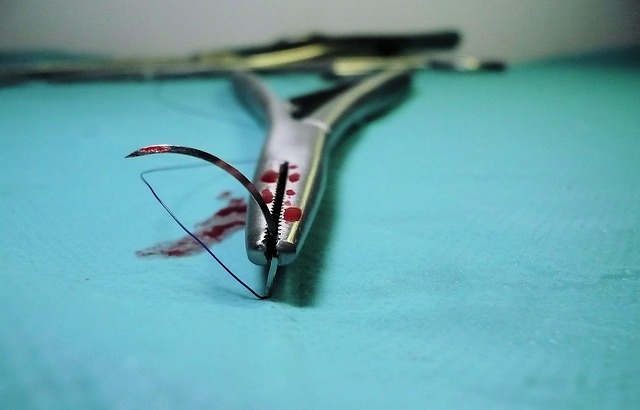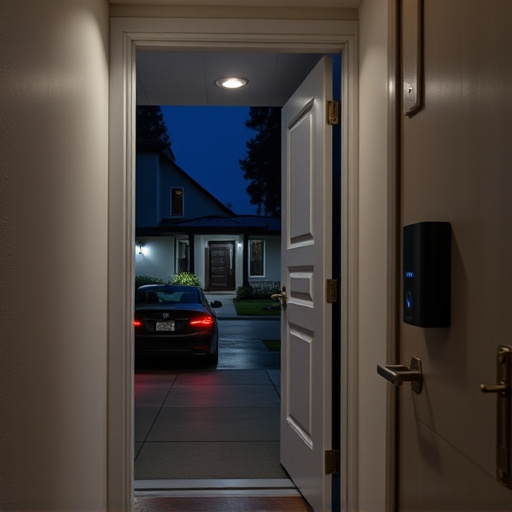Commercial properties face unique challenges with mold growth due to large size, diverse uses, and potential moisture sources like leaky roofs, poor ventilation, and water exposure from activities. To comply with strict mold regulations for businesses, maintain tenant health, and prevent legal penalties, property managers must understand and address these issues. Proactive strategies include regular inspections, rigorous cleaning routines, meticulous maintenance, and staying current with local regulations. Effective remediation involves identifying sources of moisture, following industry-standard protocols, and containing/remediating mold promptly. Prevention focuses on robust building maintenance, proper ventilation, quick repairs, dehumidification, training, and fostering reporting cultures.
In commercial properties, mold growth can pose significant health risks and legal obligations for business owners. Understanding the common sources of moisture in these spaces is key to preventing mold issues, as water damage often serves as a catalyst for fungal development. This article explores essential aspects, including mold regulations for businesses, health risks associated with exposure, and proactive strategies for identification and remediation. By delving into effective prevention tactics, commercial property managers can safeguard their spaces and comply with relevant mold regulations.
- Understanding Mold Growth in Commercial Spaces
- Common Sources of Moisture in Businesses
- Health Risks Associated with Mold Exposure
- Legal Obligations and Mold Regulations for Businesses
- Identifying and Addressing Mold Issues Proactively
- Effective Remediation and Prevention Strategies
Understanding Mold Growth in Commercial Spaces

Mold growth in commercial spaces is a complex issue that requires a deep understanding to effectively manage and prevent. Commercial properties, due to their size and varied uses, often provide optimal conditions for mold development if left unchecked. High humidity levels, poor ventilation, and frequent water exposure are common factors that contribute to mold proliferation. Regular cleaning routines and proper maintenance practices play a pivotal role in mitigating these risks.
Compliance with mold regulations for businesses is essential to ensure a safe working environment and avoid legal repercussions. These regulations provide guidelines on identification, control, and remediation of mold, emphasizing the importance of prompt action upon discovery. By staying informed about local mold standards and implementing best practices, commercial property managers can create a robust defense against this silent invader, safeguarding both the health of occupants and the integrity of the building.
Common Sources of Moisture in Businesses

Commercial properties often face unique challenges when it comes to moisture and mold, as various sources can contribute to their growth. Understanding common moisture issues is essential for businesses to comply with mold regulations and maintain a healthy work environment. From leaky roofs and poorly insulated pipes to high humidity levels due to poor ventilation, these factors create the perfect breeding grounds for mold.
In many commercial settings, such as offices, warehouses, or retail spaces, excess moisture can stem from everyday activities. High-humidity environments, whether caused by poor air circulation or increased water usage during cleaning, are particularly at risk. Additionally, businesses with food preparation or outdoor areas may encounter elevated moisture levels due to water accumulation from rain or snow. Adhering to mold regulations and proactively addressing these sources of moisture is crucial for maintaining a safe and productive commercial space.
Health Risks Associated with Mold Exposure

Exposure to mold in commercial properties can pose significant health risks to occupants and employees. Mold thrives in environments with high humidity, poor ventilation, and water leaks, making it a common problem in many businesses. According to various studies, breathing in mold spores can lead to respiratory issues, allergies, and even chronic inflammation. Individuals with pre-existing conditions like asthma or cystic fibrosis are particularly vulnerable. Additionally, some molds produce toxic compounds called mycotoxins, which can cause further health complications, including neurological problems and immune system suppression.
Beyond individual health concerns, mold presence in commercial spaces can also reflect poorly on business operations and legal obligations. Strict mold regulations for businesses often require prompt remediation and regular inspections to ensure a safe working environment. Failure to address mold issues not only poses risks to human health but may also lead to financial burdens, legal liabilities, and damage to the building’s reputation.
Legal Obligations and Mold Regulations for Businesses

Many commercial properties are subject to stringent mold regulations for businesses, which exist to protect both employees and customers from the potential health risks associated with mold growth. These regulations mandate that business owners and managers conduct regular inspections, implement robust prevention strategies, and take immediate action upon discovering any mold-related issues. Failure to comply can result in significant legal consequences, including fines and liability claims.
Business operations must adhere to specific guidelines for remediation, ensuring a thorough and safe removal process. This often involves enlisting the help of certified professionals who understand the complexities of mold removal and the importance of minimizing disruption to daily operations. Staying informed about evolving mold regulations for businesses is crucial to maintaining a safe work environment and avoiding legal pitfalls.
Identifying and Addressing Mold Issues Proactively

Identifying and addressing mold issues proactively is a crucial aspect of maintaining a healthy work environment in commercial properties, as per mold regulations for businesses. Regular inspections are key to early detection. Business owners and property managers should establish routine checks, focusing on areas prone to moisture accumulation such as basements, bathrooms, and kitchens. Visual cues like discolored walls or ceilings, musty odors, and warped flooring can indicate the presence of mold.
When potential issues are identified, immediate action is essential. Addressing the source of moisture is paramount, whether it’s a leaky pipe, inadequate ventilation, or improper drainage systems. Mold remediation should follow industry-standard protocols to ensure complete removal without spreading spores. Regular monitoring after remediation confirms that the problem has been effectively resolved, helping to prevent future occurrences and ensuring compliance with mold regulations for businesses.
Effective Remediation and Prevention Strategies

Effective remediation and prevention are crucial aspects of addressing mold issues in commercial properties, not just to ensure a healthy work environment but also to comply with relevant mold regulations for businesses. When addressing mold, it’s essential to identify and fix the root cause, whether it’s water intrusion, poor ventilation, or inadequate building maintenance. Professional remediation teams should follow strict protocols, including containing the affected area, removing and disposing of contaminated materials, and using appropriate fungicides to prevent future growth. Regular inspections and maintenance checks can significantly aid in early detection, allowing for swift action before mold colonies become extensive.
Prevention strategies should encompass a multi-faceted approach. This includes implementing robust building maintenance programs, ensuring proper ventilation and air quality, and addressing water leaks promptly. Upgrading or installing dehumidifiers in areas prone to moisture buildup can also be effective. Additionally, training employees on recognizing mold signs and promoting a culture of proactive reporting can foster a faster response time. Staying informed about local mold regulations for businesses and industry best practices will help commercial property managers and owners maintain compliance and create a safer working atmosphere.














